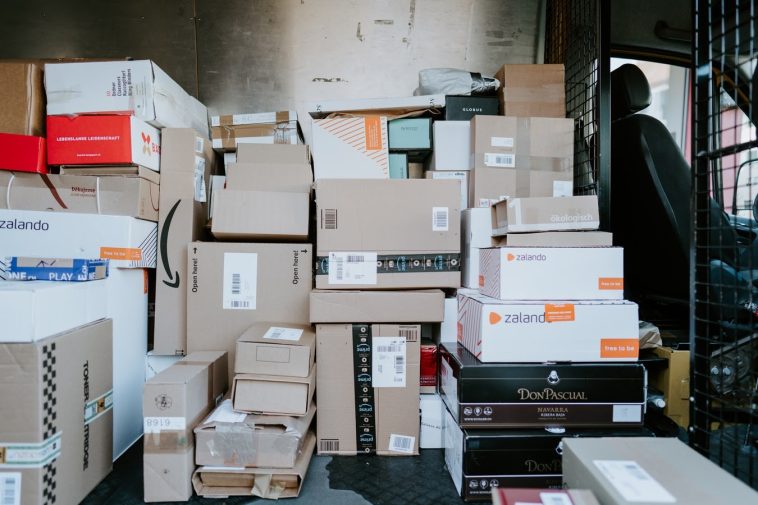Introduction.
Starting your own business is an exciting journey. If you’ve ever thought about becoming your own boss but felt overwhelmed by the challenges of inventory management and upfront investment, dropshipping could be an appealing path to explore.
This business model has gained significant attention in recent years, and for a good reason: it’s simple to set up, flexible, and doesn’t require a huge budget to get started.
But like any business venture, there are crucial legal steps to take to make sure everything runs smoothly and your operation is above board.
Why Is It Important to Set Up a Dropshipping Business Legally?
When starting a dropshipping business, it can be tempting to dive right in and focus solely on choosing the perfect products, finding suppliers, and setting up your store. However, understanding the legal framework of your business is just as critical as these elements.
Operating legally protects you from penalties, builds trust with your customers, and provides you with peace of mind. It’s not the most glamorous part of starting a business, but it’s a crucial step.
Whether you’re planning to sell kitchen gadgets or the latest tech accessories, following the law helps ensure your business can grow sustainably and won’t be shut down due to avoidable mistakes. So, let’s break down how you can legally start your dropshipping business step by step.
How Do I Legally Start a Dropshipping Business?
1. Choosing a Business Structure
The first thing you’ll need to do is decide on your business structure. Here are the most common options:
- Sole Proprietorship: This is the simplest and most affordable way to start. But, keep in mind that your personal assets are not protected if your business is sued or incurs debt.
- LLC (Limited Liability Company): This is the more protective option, separating your personal assets from your business liabilities. It’s generally the preferred structure for many small business owners.
Pros of an LLC:
- Limited liability protection
- Easier to build credibility with suppliers and customers
Cons of an LLC:
- More paperwork and higher costs compared to a sole proprietorship
2. Registering Your Business Name
Once you have a business structure in mind, the next step is to register your business name. Make sure your name is unique and hasn’t been trademarked by someone else. You can check this through your country’s trademark office or use online resources to perform a quick search.
3. Getting Your EIN (Employer Identification Number)
An EIN is like a Social Security number for your business. In the United States, you can get one for free from the IRS, and it’s needed for tax purposes. Even if you don’t have employees, an EIN is essential if you’re running an LLC.
4. Business Licenses and Permits
Different regions have different requirements for business licenses. Even if you’re not physically holding inventory, you may still need a home occupation permit or a general business license, depending on where you live. Check your local government’s website for specifics.
Finding and Working with Suppliers
Now that you’ve set up your business from a legal standpoint, it’s time to find reliable suppliers. This part of your dropshipping business is crucial, as the suppliers you work with can make or break your reputation.
- Pros of Working with Domestic Suppliers: Faster shipping times, better quality control, easier communication
- Cons of Working with Domestic Suppliers: Higher product costs
- Pros of Working with Overseas Suppliers: Lower costs, more product options
- Cons of Working with Overseas Suppliers: Longer shipping times, potential communication barriers
It’s important to establish a contract with your suppliers, outlining expectations on product quality, shipping times, and handling returns. Having everything in writing helps avoid misunderstandings.
Tax and Financial Considerations
Taxes might not be your favorite subject, but understanding how they apply to your dropshipping business is essential. In the U.S., for instance, you’ll need to understand sales tax laws. Sales tax is generally collected from customers in states where your business has a sales tax nexus.
The rules vary depending on the country or state you’re operating in, so consulting with a tax professional can be helpful.
Additionally, keep track of your expenses and revenue to simplify the tax filing process. Using accounting software or hiring an accountant could save you a lot of headaches.
Setting Up a Payment Gateway
To get paid, you’ll need to set up a payment gateway like PayPal, Stripe, or another reliable provider.
Ensure your gateway is secure and easy to use, as this will impact the user experience and customer trust in your store.
Pros of Popular Gateways Like PayPal and Stripe:
- Widely recognized and trusted
- Easy to integrate into most e-commerce platforms
Cons of Popular Gateways:
- Transaction fees can add up, especially if you have high sales volumes
- May freeze funds or have stricter policies if fraudulent activity is suspected
Common Questions About Legally Starting a Dropshipping Business
1. Do I Need a Business License for Dropshipping?
It depends on where you live. Some regions require a general business license even for online operations, so check with your local government.
2. How Do I Handle Sales Tax?
In the U.S., if your business has a sales tax nexus in a particular state, you are responsible for collecting sales tax from customers in that state. It’s best to consult a tax professional to understand your obligations.
3. What’s the Best Business Structure for Dropshipping?
An LLC is a popular choice because it offers personal liability protection, but a sole proprietorship may work if you’re starting small and want to keep costs low. Weigh the benefits and drawbacks of each before deciding.
4. Can I Use a Personal Bank Account for My Business?
While it’s possible, it’s not recommended. Having a separate business bank account helps with bookkeeping and presents your business more professionally.
5. Do I Need Insurance for My Dropshipping Business?
While it’s not required, having business insurance can be a lifesaver in case of liability issues or disputes. It’s worth looking into if you’re scaling your business.
Conclusion
Starting a dropshipping business can be a rewarding way to achieve financial independence and flexibility.
However, taking the right legal steps at the outset is critical to your success. Ensuring your business is compliant doesn’t just protect you—it also sets you up for growth and stability.
By establishing a solid foundation, you can focus on what really matters: building your brand, connecting with customers, and scaling your store.
Ready to dive in? What products are you most excited to start selling through your dropshipping store?





GIPHY App Key not set. Please check settings